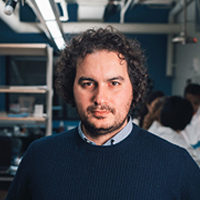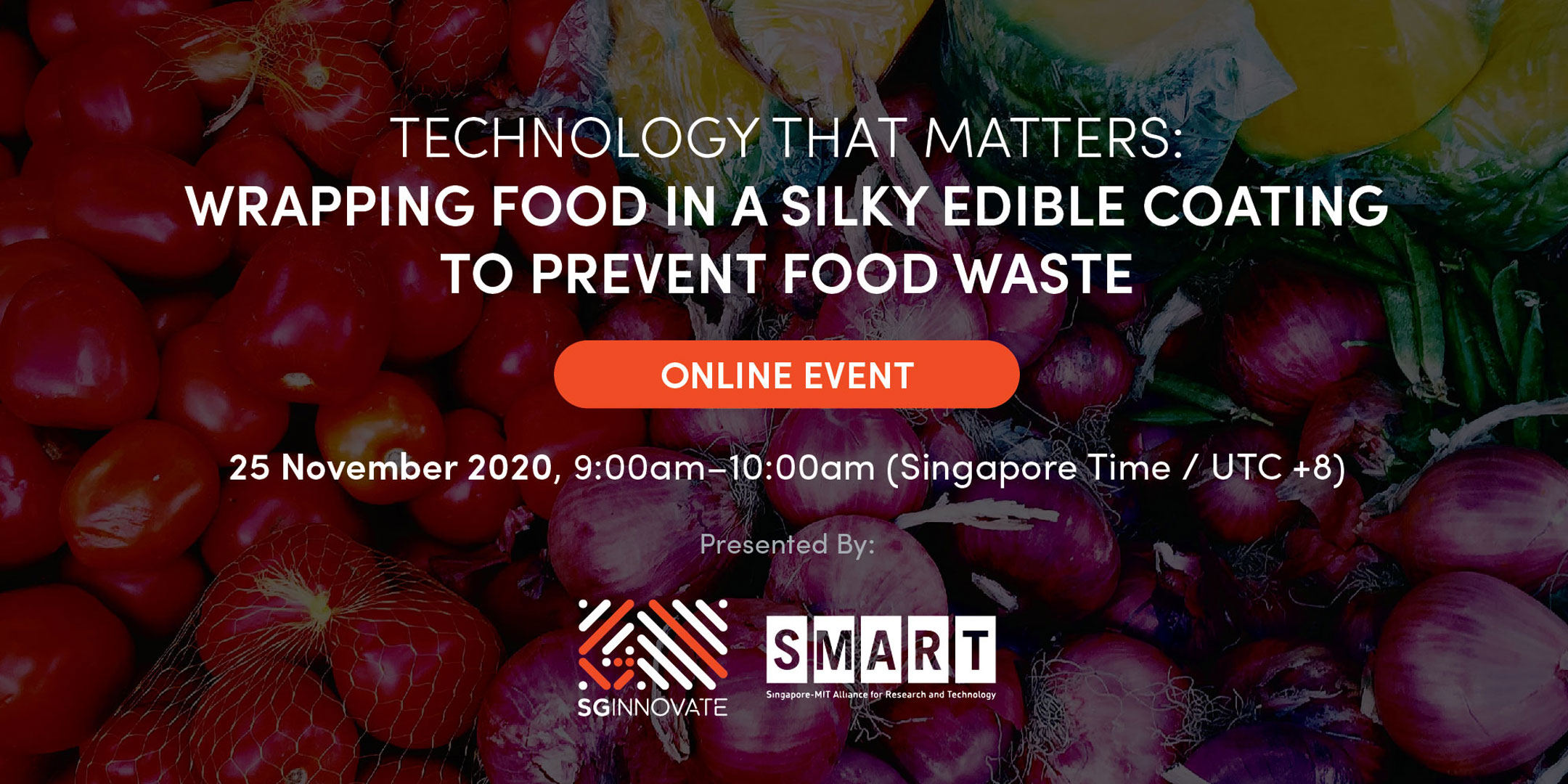Overview
Our lives have suddenly been forced into the core of the digital world this year. We are still able to work and socialise globally because of the advancement in technology. Despite the situation we are in today, scientists will continue to advance the technology to aid the human race.
As part of the Technology That Matters series, SMART and SGInnovate have invited MIT Professors to share their technologies. There will be fireside chats and panel discussions! Don't miss this opportunity to interact with MIT Professors.
---
Food waste does not only raise ethical and economic issues, but it also depletes the environment of limited natural resources. In a world that strives to feed 800 million people currently living in food insecurity, between 30% to 40% of all produced food worldwide is wasted.
Additionally, while society is determined to sustainably increase food production to support a projected 10 billion population by 2050, 6% of all anthropogenic greenhouse gas emissions and 20% of global freshwater consumption go wasted in food that reaches the table.
In Singapore, food waste accounts for about 10% of the total waste generated and equals to circa 800 000 tons a year (circa two bowls of rice per person per day). The benefit of applying biomaterials science principles to food security remains underexplored, especially when compared to material-based research efforts in biomedicine, energy and optoelectronics.
Discover how recent developments in the nanomanufacturing of silk proteins to engineer a new generation of advanced materials that can be interfaced with food and plants. Fibroin is the structural protein found in the Bombyx mori silk cocoon. It can be regenerated with a water-based process in a technological, non-toxic, and edible biomaterial.
Through leveraging new techniques to direct the assembly of silk fibroin molecules into nanostructured materials, find out the applications of silk fibroin as an edible coating to prolong the shelf life of perishable food as well as the considerations on economics, technology scale-up and potential deployment in real-life settings.
Date: 25 November 2020, Wednesday
Time: 9:00am - 10:00am (Singapore Time / UTC+8)
Programme:
9:00am - 9:05am: Opening Remarks by SGInnovate and SMART
9:05am - 9:35am: Presentation on Technology That Matters: Wrapping Food In A Silky Edible Coating To Prevent Food Waste by Prof Benedetto Marelli, MIT Civil and Environment Engineering
9:35am - 10:00am: Panel Discussion and Q&A
Speaker's Profile:
Prof Benedetto Marelli, MIT Civil and Environment Engineering

Professor Benedetto Marelli is the Paul M Cook Career Development Assistant Professor in the Department of Civil and Environmental Engineering at the Massachusetts Institute of Technology (MIT). He received a Bachelor of Engineering and a Master of Science in Biomedical Engineering from Politecnico di Milano in 2005 and 2008, and a PhD in Materials Science from McGill University in 2012. After a Postdoc in the Silklab at Tufts University, Benedetto joined the MIT Faculty in November 2015.
At MIT, the Marelli research group works in structural biopolymers and nanomanufacturing. By using biofabrication strategies that integrate bottom-up and top-down techniques, the research efforts are focused on the design of materials that act at the biotic/abiotic interface with applications in precision agriculture, urban farming, food safety, and food security.
Benedetto has recently received several awards, including PECASE, NSF CAREER, ONR Young Investigator Award and ONR Director of Research Early Career Award. Benedetto's research has been awarded more than 15 IP positions, and he is co-founder of Mori Inc which uses silk technologies to enhance the preservation of perishable food.






